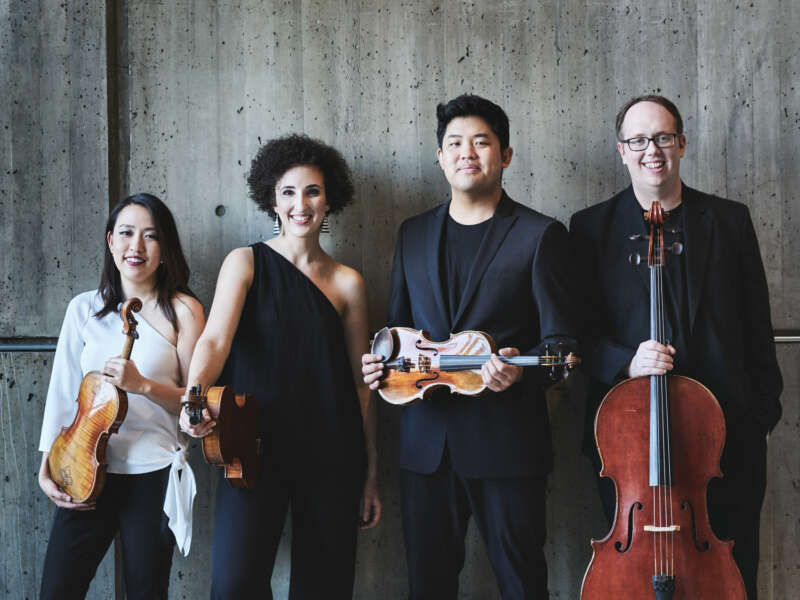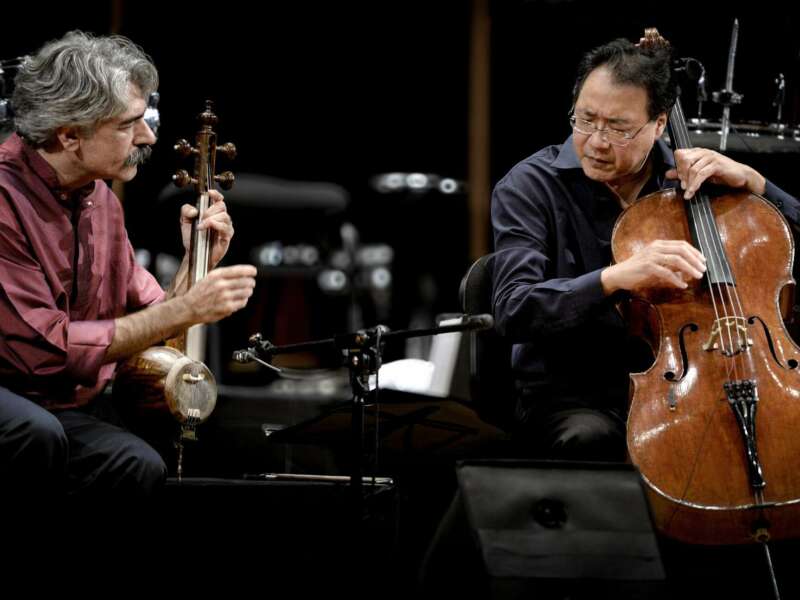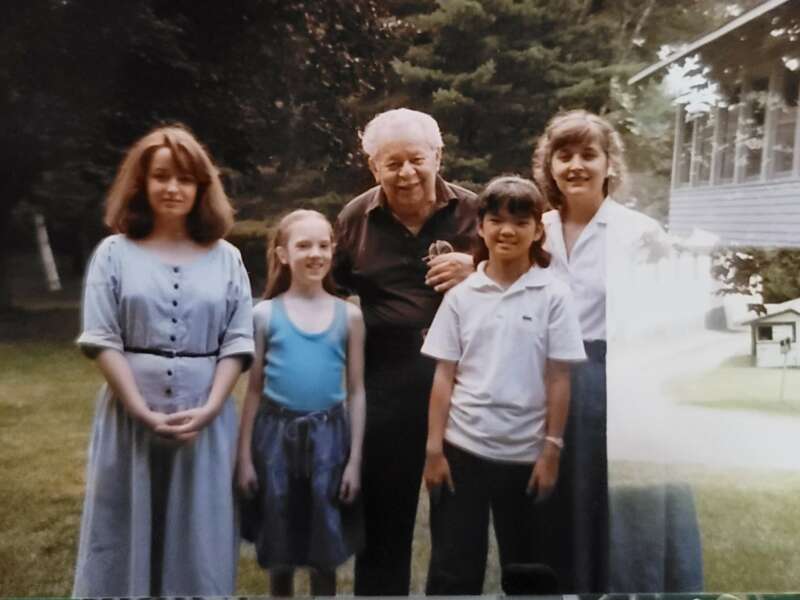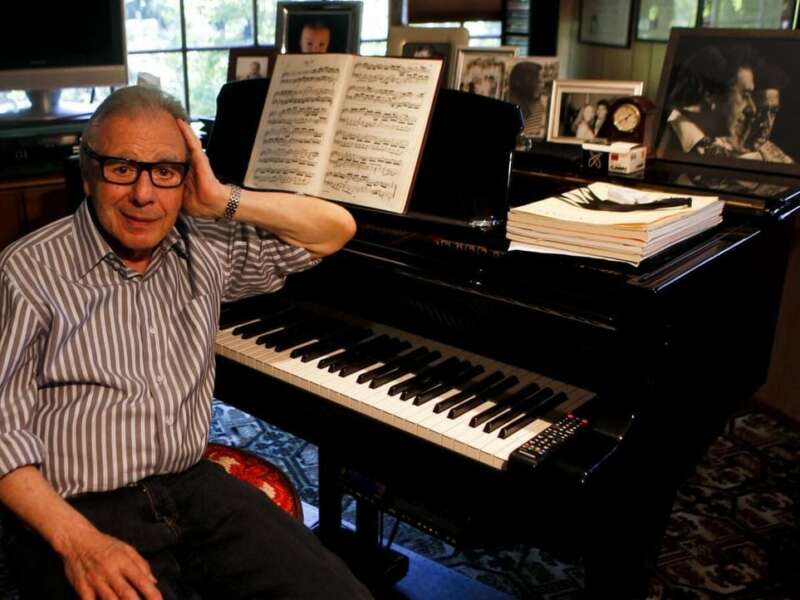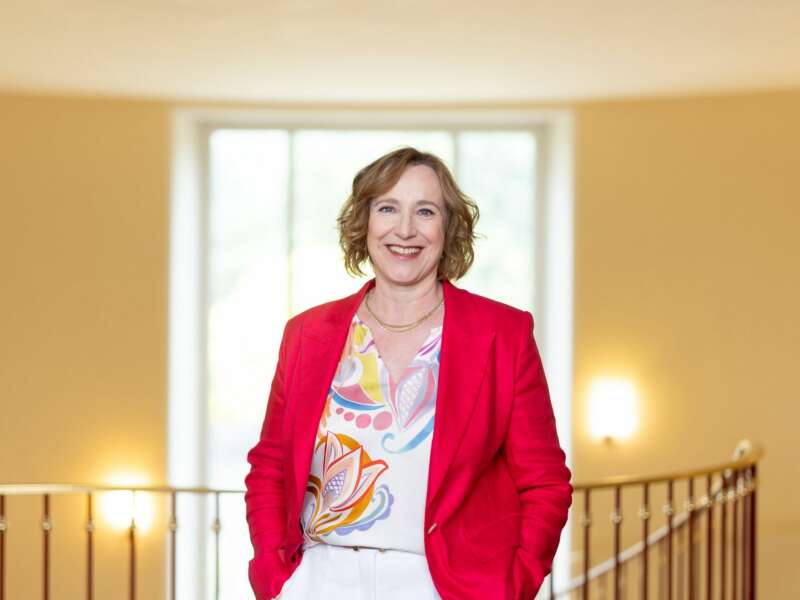VC INTERVIEW | Robert Lipsett and Fabiola Kim on the Sounding Point Academy
The Violin Channel recently discussed the upcoming academy with its co-founders and artistic directors, Robert Lipsett and Fabiola Kim — who are now both on faculty at the Colburn School in Los Angeles.
Can you tell us about how this project came to fruition and its association with the Colburn School?
This idea came together in the spring of 2020 during the first COVID lockdown. Everything had closed down for the first time, and we were just getting used to teaching on Zoom. We were thinking about what we could do to motivate our students and bring artists together, and we decided to do an online program. Within the next few days, our website and application were up and running, and fast-forward three weeks, we were on our first Zoom class with 130+ students from all over the world!
We had no plans for the program to continue again online or in-person, but when the positive feedback kept coming in from students, we decided it was only natural to take it to the Colburn School, given our very strong ties to the School. With its fantastic facilities and staff, all parties agreed that this collaboration would be extremely exciting.
Where does the name come from? How does the course differ from other Summer educational programs?
Sounding Point is an area between the bridge and the fingerboard on a string instrument. Finding the optimal point for sound is a very fundamental and artistic part of violin playing. I personally spend much of my time looking for the right sounding point with my students and my own playing. In a similar way, we hope that our Academy helps guide students to their (and the right) sounding point.
Our program is very focused. We have practice time built-in, two lessons per week, and offer different classes to help students become well-rounded violinists. It is a program led by individuals who are currently in the business and have a clear understanding of the music world.
Ms. Kim, you’ve indicated the focus of the Academy is on "future leaders." Can you please explain this mission? How are your workshops and activities tied to this?
We believe it’s crucial for musicians these days to wear multiple hats, and we provide tools to help students achieve that. We will have faculty members who are soloists, chamber musicians, pedagogues, and concertmasters, as well as guest artists who will come in to give lectures and recitals. Our intention is to help students open their eyes to all aspects of violin playing, all the while helping them stay focused on their craft by starting each day with a technique class and built-in practice time.
We have master classes given by our faculty, guest lectures, excerpt classes, and even a public-speaking class, covering many aspects of what their careers might look like. I personally find that being a teacher of approximately twenty students — while maintaining a performance career — is very fulfilling. My teaching helps my playing, and my playing helps my teaching. We hope our students leave this program inspired by the multiple aspects of violin playing that they discover and explore.
For which musicians would you say your summer course is most suited?
Our program is suited for students who would like to pursue serious musical careers!
What does a day at the Sounding Point Academy look like?
We start each morning with a 30-minute technique class. Each day will be focused on a different concept led by our faculty. This is a great way for everyone to start the day together, motivated to get to the practice rooms! We then have 9:30-12 pm and 1-3 pm scheduled for practice time and private lessons. Students will have two lessons per week. In the afternoon, we have group classes scheduled, and on some days, we have student and guest artist recitals in the evening.
Ms. Kim, for you, what are the most important qualities a musician needs today in the 21st Century in order to be successful and be a leading force in today’s working landscape?
I think a few of the most important qualities are patience and honesty. We are fortunate to see so many great talents and performers. However, the art that we strive to perfect takes hours of patience and hard work, and there is no shortcut. No doubt, it takes a great deal of patience and time to truly devote yourself to this.
We also live in a time where everything is so easily accessible; every one of us can create a persona on social media, sometimes making it more and more difficult to stay honest with yourself and your music-making. When we can be true to our art and self, our music will come across that much more genuine as well. I also think it’s very important to live as citizen-artists. During the pandemic, many of us realized how truly important music was to the lives of those around us, and I was so touched by that. Music is exceptionally powerful, and we can absolutely use our art to influence and help the communities around us.
Ms. Kim, can you tell us more about the public-speaking components of the academy?
Connecting with our audience is very important. What we do requires an audience, a response. I enjoy speaking to them after concerts, and I’ve often found that you can help the audience make immediate connections with your playing and the music if you’re able to speak about your art and what you have curated to perform for them.
I often see performers who are charismatic on their instruments, but when they are asked to speak on stage, they are very uncomfortable. It is because they have been trained to perform solely on their instruments on stage, but to not speak and verbally express themselves on stage. I think it's an incredibly important tool, and just as we train to perform on our instruments, we will help students train in public speaking.
Mr. Lipsett, what is your best advice for young students coming out of college today looking to find their path in the professional world of music?
No matter how much the world changes around us, there are certain constants, and one of those constants is to be excellent at what you do. Competition may be greater than ever, but if you are truly excellent as a performer, there will be a place for you.
I think that when you reach your twenties, you should start thinking about what area of music you belong in or that you care to pursue. With that in mind, direct yourself toward it, learn everything you can about it, and prepare yourself for it. The music business is complicated and multifaceted, with multiple layers of possibilities.
Being flexible in your pursuits is important. If one thing doesn’t work, don’t hesitate to try something a little different. In professional work (that is, performing,) I always lived by the motto of “stay busy.” If what you truly want is not available to you, don’t hesitate to take something a little lower in the pole, but the important thing is to stay busy. Work yourself up the ladder.
Mr. Lipsett, you have been teaching at the highest level for many decades. Are there any particular pedagogical concepts or lessons you have learned along the way that you would like to share with our audience — students, players, and teachers?
Yes, I believe in teaching from a platform — a platform consisting of three things: rhythm, pitch, and sound. Everything that you practice for should have these solid underpinnings. Wonderful phrasing with poor pitch has no relevance. Great playing with poor rhythm has no meaning. And if you have not yet developed beauty of sound, the door is closed.
To a large extent professionally, you are being paid for the perfection of rhythm, pitch, and sound. Along with these three things are: musicality, temperament, and personality. For instance, as an orchestral musician, conductors are all looking for rhythm, pitch, and sound, primarily. As a soloist, rhythm, pitch, and sound are basic to the development of your artistry of great music-making, temperament, and fire.
The area of truly great soloists resides in all of these qualities, plus spontaneity and great personality. All great teaching must rise from these basic qualities.
How can musicians apply to the 2022 Sounding Point Academy?
You can find all the necessary information on our website at: www.soundingpointacademy.com. The application is due on or before April 8 at 5 pm PST!
june 2025
july 2025



